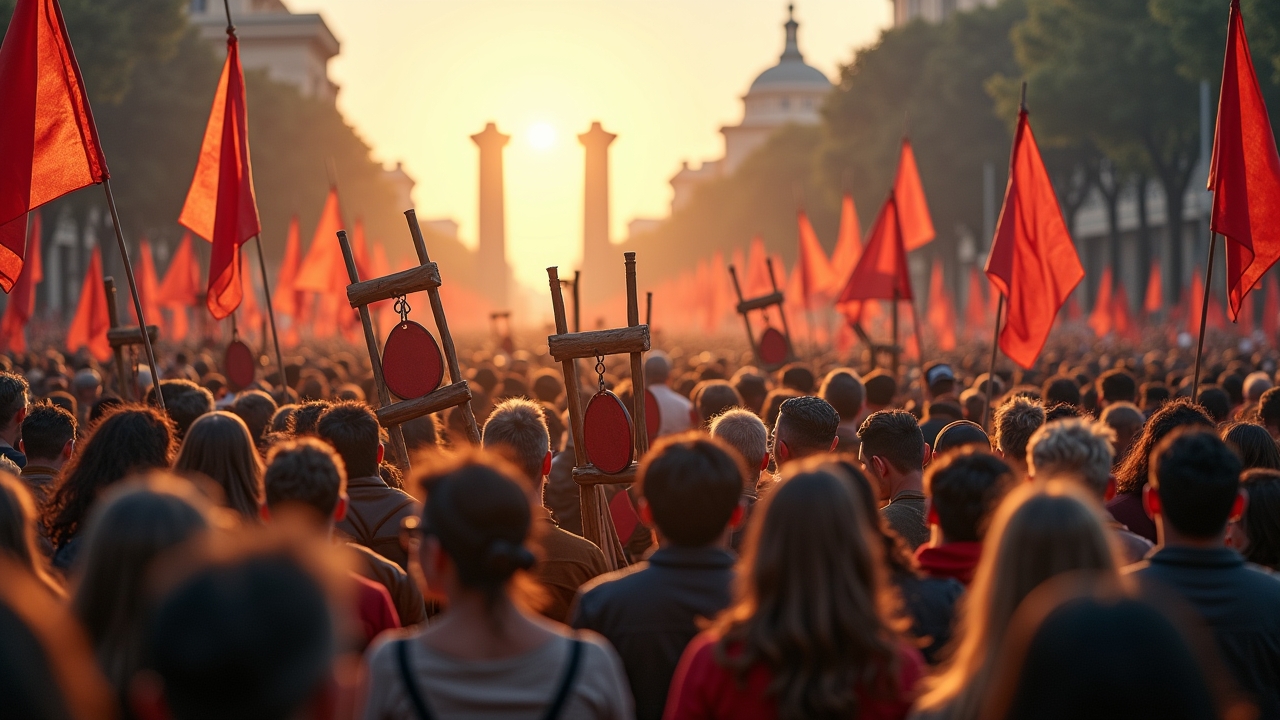PROTECT YOUR DNA WITH QUANTUM TECHNOLOGY
Orgo-Life the new way to the future Advertising by AdpathwayRabban Hormizd Monastery, overlooking the town of Alqosh in Iraqi Kurdistan, is a testament to resilience amid a turbulent history. This site, one of the oldest continuously inhabited Christian towns in the world, has endured centuries of conflict yet remains a hub for the Assyrian community. The monastery, founded in the 7th century by Rabban Saint Hormizd, became integral to the religious and cultural identity of the area, especially for the Chaldean Catholic Church.
The accounts of individuals like Samir, an Assyrian whose life was turned upside down by al-Qaeda in Baghdad, highlight the harsh realities faced by ethnic minorities in Iraq. Samir recalled, “Three Kalashnikovs against my head,” as terrorists stripped him of his livelihood, pushing him to seek safety in Erbil. Stories like his echo the experiences of countless others who faced similar fates, including Christians who were systematically targeted by extremist groups. As ISIS rose to power in the region, the systematic persecution of Christians, Yazidis, and other minorities escalated dramatically. The chilling progression from al-Qaeda to the Islamic State represents a broader pattern of violence against those who do not subscribe to extremist ideology.
The plight of the Yazidis, particularly during the horrific 2014 Sinjar massacre, serves as a stark example of genocide against a vulnerable population. Tens of thousands of Yazidis found themselves trapped by ISIS, facing annihilation or brutal subjugation. The United Nations and global communities have recognized these actions as genocide, but the scars left on the fabric of this ancient society remain profound.
As ISIS expanded its control, towns like Alqosh became focal points for resistance. Amidst the chaos, the men of Alqosh chose to stay and protect their homes rather than flee. Athra, an Assyrian man born in Alqosh, recounted the growing fear as ISIS moved closer. Instead of leaving, he and others organized a militia. Their determination paid off; even when Kurdish Peshmerga forces withdrew, the local fighters held the line, preventing the fall of their town.
Despite the threat, the people of Alqosh demonstrated remarkable courage and solidarity. Athra explained how, after the initial danger subsided, many Assyrians from neighboring villages came to Alqosh seeking refuge. The town not only survived but grew in population. This expansion shows how, even in dire circumstances, a community can open its arms to others in need, harnessing collective strength to endure hardship.
The enduring legacy of Alqosh and its residents is about more than mere survival. Athra emphasized the importance of cultural preservation: “I was born here, and I will die here.” His words underline the significance of staying connected to one’s roots, particularly in a world that often overlooks the stories of ancient cultures. The Assyrians, with a history spanning over 7,000 years, contribute richly to the human experience and are determined that their unique identity does not vanish amidst global changes.
With parts of the town undergoing renovation as hope for stability grows, the spirit of Alqosh reflects a resilience that many communities can learn from. Athra’s resolve to maintain his culture, even amid external pressures to assimilate elsewhere, speaks to the broader question of cultural survival in an ever-shifting landscape.
This ancient monastery town remains a beacon for the Assyrian spirit, showing that even in the face of overwhelming odds, the will to preserve cultural identity and community bonds can stand against forces of destruction. As the world looks on, the stories that emerge from Alqosh serve as a reminder of the enduring strength found in tradition and faith.
"*" indicates required fields


 2 days ago
4
2 days ago
4


















.jpg)






 English (US) ·
English (US) ·  French (CA) ·
French (CA) ·